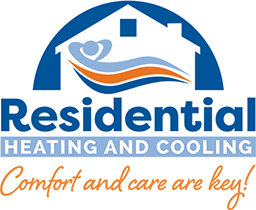Energy costs are rising, and homeowners are looking for ways to save money while keeping their homes comfortable. Upgrading to an energy-efficient HVAC system will reduce your energy bills. It will also minimize your environmental impact.
Before proceeding, you need to understand your green HVAC options. This guide breaks down the best energy-efficient HVAC systems. It also highlights practical ways to improve HVAC energy efficiency, and why making the switch is a smart investment.
What Makes an HVAC System Energy-Efficient?
Not all heating and cooling systems are created equal. The most energy-efficient HVAC units use advanced technology to optimize performance while consuming less power. When shopping for an upgrade, look for these key features:
- High SEER and AFUE Ratings: Air conditioners with a SEER (Seasonal Energy Efficiency Ratio) rating of 16+ and furnaces with an AFUE (Annual Fuel Utilization Efficiency) of 90%+ offer the best efficiency.
- Variable-Speed Compressors and Fans: These systems don’t run at full power at all times. Instead, they adjust output based on demand. This leads to significant energy savings.
- Smart Thermostats and Zoning Systems: Smart thermostats improve efficiency by allowing precise temperature control. Zoning systems ensure energy isn’t wasted heating or cooling unused areas.
- Proper Home Insulation and Sealing – An efficient HVAC system needs a well-insulated home to prevent air leaks. These drive up energy usage.
Best Energy-Efficient HVAC Systems
If you’re looking to install or upgrade your HVAC system, consider these high-efficiency options:
1. High-Efficiency Air Conditioners
Modern efficient cooling systems use inverter-driven compressors to adjust power based on need. Look for units with a SEER rating of 18+ and ENERGY STAR certification. These HVAC systems are best for homeowners in warm climates who rely heavily on air conditioning.
2. Heat Pumps (Air-Source and Geothermal)
Heat pumps provide green heating solutions by transferring heat rather than generating it. They work year-round, heating in winter and cooling in summer.
- Air-source heat pumps work best in moderate climates and offer significant energy savings.
- Geothermal heat pumps use underground temperatures for the most efficient heating and cooling available. This can reduce energy consumption by up to 60%.
3. High-Efficiency Furnaces
Installing a gas furnace with 90%+ AFUE ratings will burn less fuel while maintaining consistent indoor comfort. Modulating gas furnaces adjust heat output in small increments, preventing energy waste. They are best for homes in colder climates that need consistent heating.
How to Improve HVAC Energy Efficiency Without Replacing Your System
Not ready to invest in a new energy-efficient HVAC system? There are still ways to reduce energy consumption and lower your bills.
- Upgrade to a Smart Thermostat: Smart thermostats help homeowners save up to 15% on heating and cooling costs by automatically adjusting temperatures based on schedules and occupancy.
- Seal Air Duct Leaks: Leaky ducts can cause 30% energy loss, forcing your system to work harder. Sealing duct leaks improves efficiency and indoor air quality.
- Perform Regular HVAC Maintenance: Dirty filters and clogged coils make HVAC systems run inefficiently. Replacing air filters and scheduling routine maintenance ensures peak performance.
- Improve Home Insulation: Attic and wall insulation prevent energy loss, reducing heating and cooling demands.
- Use Ceiling Fans: Fans circulate air more effectively. This lets you set your thermostat higher in summer and lower in winter without sacrificing comfort.
Why Invest in an Energy-Efficient HVAC System?
Switching to an energy-efficient HVAC setup isn’t just about cutting costs—it’s about long-term value. Here’s why making the switch is a smart move:
- Lower Utility Bills – High-efficiency systems significantly reduce energy use, leading to lower monthly costs.
- Reduced Carbon Footprint – Energy-efficient heating and cooling systems use less fuel and electricity, reducing greenhouse gas emissions.
- Improved Home Comfort – Smart features and advanced technology provide better temperature control and humidity regulation.
- Increased Home Value – Homes with energy-efficient HVAC systems are more attractive to buyers, increasing resale potential.
- Government Rebates and Incentives – Many utility companies and state programs offer financial incentives for upgrading to energy-efficient heating and cooling systems.
Final Thoughts: Make the Switch to an Energy-Efficient HVAC System
Investing in an energy-efficient HVAC system is one of the best ways to lower energy bills. It will also make your home more comfortable and reduce your environmental footprint.
Small changes can lead to significant savings. This is true whether your choose a high-efficiency air conditioner, a green heating solution like a heat pump, or simply improve HVAC energy efficiency through maintenance,
Looking for expert guidance on the best efficient cooling systems and energy-efficient heating options for your home? Schedule service today to start saving on energy costs.


